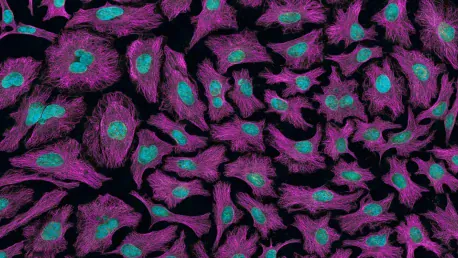In a significant move likely to reshape the competitive landscape, the FDA has granted approval for Novartis’ Kisqali, when paired with an aromatase inhibitor, for the adjuvant treatment of HR-positive, HER2-negative stage 2 and 3 breast cancer at high risk of recurrence post-surgery. This approval sets the stage for a market showdown with Eli Lilly’s Verzenio, but what’s crucial is that Kisqali’s expanded label includes patients who do not have cancer cells in their lymph nodes. Unlike Verzenio, which is approved only for patients with nodal involvement, Kisqali’s broader indication effectively doubles the potential patient population eligible for postsurgical CDK4/6 inhibitor therapy.
Groundbreaking Clinical Evidence
The NATALEE Trial Results
The foundation for the FDA’s approval is the phase 3 NATALEE trial, which clearly demonstrated that adding Kisqali to endocrine therapy reduced the risk of disease recurrence or death by 25.1% compared to endocrine therapy alone. This impressive result provides a compelling argument for Kisqali’s effectiveness as an adjuvant therapy in early-stage HR-positive, HER2-negative breast cancer. The trial’s exploratory four-year analysis, presented at the European Society for Medical Oncology meeting, also illustrated a 28.5% reduction in disease recurrence or death over a longer follow-up period. For patients without nodal involvement, 92.1% of Kisqali users remained alive and disease-free at four years, compared to 87% in the control group.
These findings are particularly important because they show a considerable benefit for patients without nodal involvement, a group previously underserved by existing CDK4/6 inhibitors. The lower dose and extended treatment duration of up to three years for Kisqali further bolster its utilization in early-stage cancer therapy. Unlike Verzenio, which has a two-year regimen, Kisqali’s longer treatment period could enhance its long-term efficacy. The data from the NATALEE trial presents a promising outlook for Kisqali and could be a crucial factor in its adoption by oncologists.
Addressing Treatment Discontinuation
While the NATALEE trial results have been largely positive, it’s worth noting that 37.2% of patients discontinued treatment early, primarily due to adverse events like asymptomatic liver enzyme elevations. This high discontinuation rate underscores the need for effective real-world management strategies, including dose adjustments, to mitigate these issues. Novartis has emphasized that with proper management, these adverse effects could be minimized, potentially increasing patient adherence to the treatment regimen.
Real-world data often paints a more comprehensive picture than clinical trials alone. Novartis argues that by adjusting doses based on individual patient responses, many of the adverse effects leading to discontinuation can be managed effectively. This approach could pave the way for Kisqali’s broader acceptance and long-term success. As the medical community gains more experience with the drug, tailored treatment plans could further improve outcomes and reduce the incidence of adverse events, making Kisqali a viable option for a larger patient population.
Market Impact and Future Projections
Expansion and Growth
Kisqali’s robust performance across various early-stage cancer subgroups is not just a clinical triumph; it also represents a significant commercial opportunity. Novartis forecasts that the broader application of Kisqali could lead to more than $3 billion in additional annual peak sales. This projection significantly boosts Kisqali’s total peak sales projection to $7 billion, a substantial figure that highlights the drug’s potential market impact. The established popularity of Kisqali in treating metastatic HR+/HER2- breast cancer further bolsters these optimistic sales projections.
This optimistic outlook is echoed in the market’s response. Investors and stakeholders are keenly watching how Kisqali’s performance will shape the competitive landscape between Novartis and Eli Lilly. Verzenio, which saw a 42% increase in sales to $2.38 billion, has already demonstrated the substantial market potential for effective adjuvant treatments. With Kisqali now entering the fray with a broader label, the competition is set to intensify, offering patients more options and potentially driving advancements in treatment standards.
Competitive Landscape
In a significant development poised to alter the competitive landscape, the FDA has approved Novartis’ Kisqali for use with an aromatase inhibitor in the adjuvant treatment of HR-positive, HER2-negative stage 2 and 3 breast cancer at high risk of recurrence after surgery. This approval paves the way for a competitive clash with Eli Lilly’s Verzenio. A crucial aspect of Kisqali’s expanded indication is that it includes patients without cancer cells in their lymph nodes. In contrast, Verzenio is only approved for patients with nodal involvement. Kisqali’s broader approval effectively doubles the potential patient population eligible for postsurgical CDK4/6 inhibitor therapy, making it a strong contender in this therapeutic space. This broader reach can potentially offer a significant advantage in the treatment market, providing many more patients the opportunity for effective adjuvant therapy and potentially altering prescriptive practices among oncologists. The move could therefore significantly impact both market dynamics and patient outcomes.









